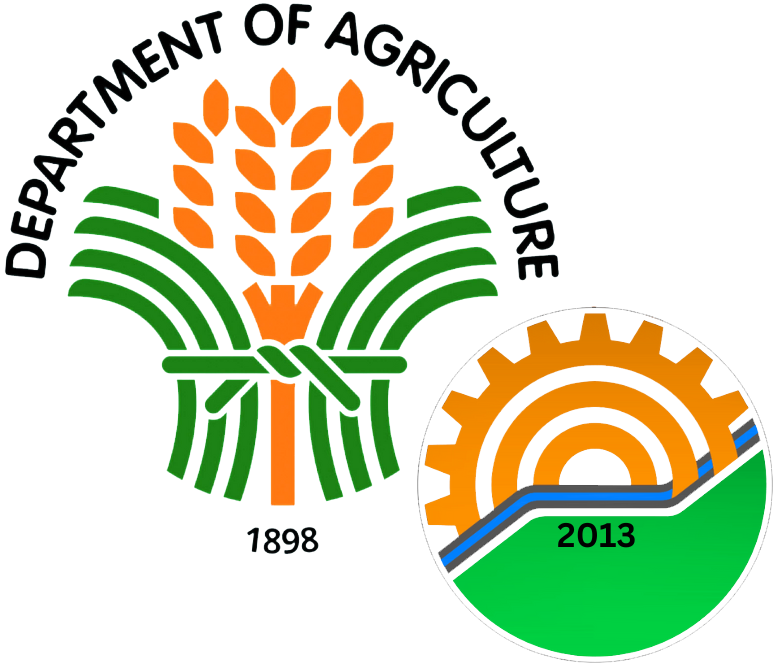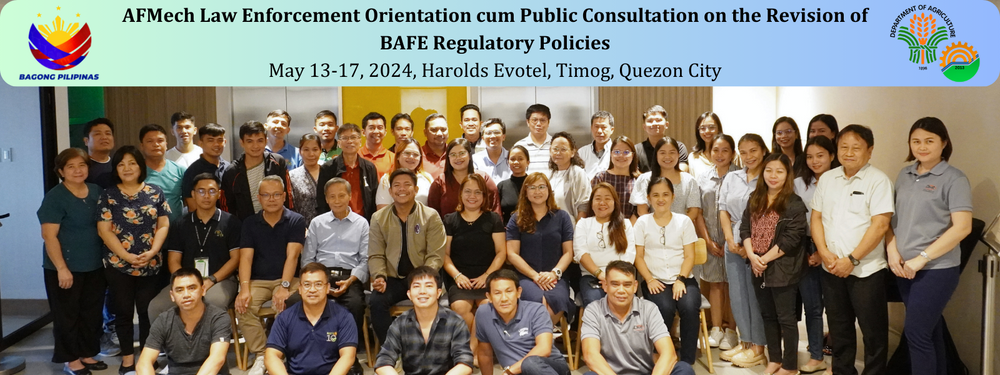

DEPARTMENT OF AGRICULTUREBUREAU OF AGRICULTURAL AND FISHERIES ENGINEERINGSugar Center, Annex II Building Extension, North Avenue, Diliman Quezon City




QUEZON CITY – The agricultural and fisheries sectors in the Philippines are on the brink of transformation, as DA-BAFE’s revised machinery guidelines promise to deliver enhanced safety, efficiency, and innovation to these vital industries.
The Department of Agriculture – Bureau of Agricultural and Fisheries Engineering (DA-BAFE) recently concluded a five-day workshop titled AFMech Law Enforcement Orientation cum Public Consultation on the Revision of BAFE Regulatory Policies.

The importance of stakeholder consultation in developing comprehensive and widely accepted guidelines was emphasized by BAFE-SRED Chief Engr. Janice P. Vargas in her opening remarks. “Our collaborative approach is key to achieving regulatory goals, fostering innovation, and ensuring compliance within the industry,” said Engr. Vargas.
The workshop is an important activity towards refining and implementing agricultural mechanization policies. Discussions centered around establishing, adopting, and enforcing the Philippine National Standards/Philippine Agricultural and Biosystems Engineering Standards (PNS/PABES), which are guidelines designed to ensure that machinery and equipment used in agriculture and fisheries meet national quality and safety benchmarks.
Equally important were the draft guidelines for compliance monitoring and surveillance, protocols that outline the procedures for regular evaluation to ensure machinery adheres to established standards, thereby promoting safety and efficiency across the industry.
Revised guidelines for acceptance testing of agri-fishery machinery were also on the agenda. These updates focus on the procedures for testing new machinery to confirm it meets performance and safety standards before being deployed in the field. This meticulous approach to machinery testing underscores the commitment to maintaining high operational standards.
Further discussions included the registration process and issuance of permits to operate (PTO) for agricultural and fisheries machinery, which are critical for regulatory compliance and market entry of new technologies. The draft revised guidelines for issuing certificates of conformity were another focal point, ensuring machinery meets all required standards.
The optimism among industry representatives was evident. The guidelines are a significant step forward in ensuring the quality and safety of agricultural machinery, which will, in turn, boost productivity and sustainability of the agricultural and fisheries sector. The regular compliance monitoring and acceptance testing will help maintain high standards and drive continuous improvement.
For the private sector, the workshop provided an excellent platform to voice their concerns and suggestions. The collaborative spirit was evident among private sector representatives, and they are confident that the final guidelines will reflect their input.
The workshop highlighted DA-BAFE’s dedication to an inclusive and consultative regulatory process. The feedback received will be instrumental in refining the drafts, with final guidelines expected later this year.
The revised guidelines represent substantial improvements over previous regulations, particularly in compliance monitoring and acceptance testing. Stakeholders anticipate these new standards will not only enhance safety and efficiency but also stimulate technological advancements in agricultural and fisheries machinery.
Experts in the field are optimistic about the impact of these revised guidelines. The updated standards and rigorous testing procedures will ensure that only high-quality machinery is used, which is essential for the safety of agricultural workers and the efficiency of our operations.
The outcomes of the said workshop include a set of more refined guidelines that reflect the insights of a wide range of stakeholders. These guidelines aim to support the growth and development of the agricultural and fisheries sectors in the Philippines, ensuring that machinery used is safe, efficient, and sustainable.
The second and third legs of the island-wide public consultation are on May 20-24, 2024 at Iloilo City for the Visayas Cluster, and on May 27-31, 2024 at Davao City for the Mindanao Cluster respectively.###DA-BAFE ICTST
As of
As of
As of




All contents are in the public domain unless otherwise stated.
Learn more about the Philippine Government, its structure, how Government works and the people behind it.

Sugar Center, North Avenue, Diliman, Quezon City.
